Top Iranian Official Slams US Pledge To Prevent Nuclear Weapons
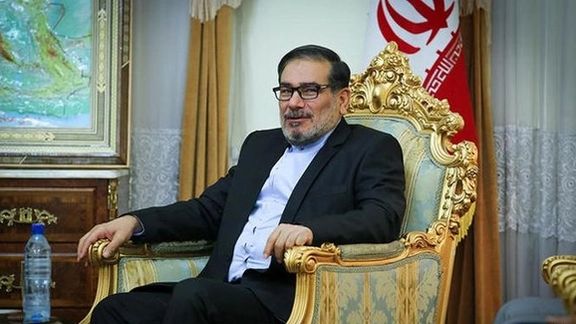
Iran’s top security official, Ali Shamkhani, has ridiculed US determination to stop the Islamic Republic developing nuclear weapons.

Iran’s top security official, Ali Shamkhani, has ridiculed US determination to stop the Islamic Republic developing nuclear weapons.
On Thursday, America’s National Security Advisor Jake Sullivan had warned that President Joe Biden will “take the actions that are necessary” to prevent Tehran creating an atomic bomb.
Speaking the next day, Iran's Supreme National Security Council (SNSC) secretary Ali Shamkhani said Sullivan’s statements are a “confession” that Washington is responsible for all so-called terrorist acts against the people and nuclear facilities of Iran.
The unsubstantiated claims by Shamkhani come amid mounting international concern over Iran’s nuclear weapons programme.
Sullivan had told Middle East experts at the Washington Institute for Near East Policy: “From my perspective, we are back in a position that we were in before where Iran is enriching, is advancing, and this nuclear program poses a genuine challenge to our fundamental non-proliferation goals.”
Elsewhere in his remarks, he said the US has made clear to Iran that it can never be permitted to obtain a nuclear weapon.
“As President Biden has repeatedly reaffirmed, he will take the actions that are necessary to stand by this statement, including by recognizing Israel’s freedom of action.”
In a sign of European concern, Britain, France and Germany also warned Iran on Friday that they would trigger a return of UN sanctions against Tehran if it enriched uranium to the optimal level for a nuclear weapon, three European officials said.
Western officials fear a nuclear-armed Iran could threaten Israel, Gulf Arab oil producers, and spark a regional arms race. Iran denies seeking nuclear weapons.
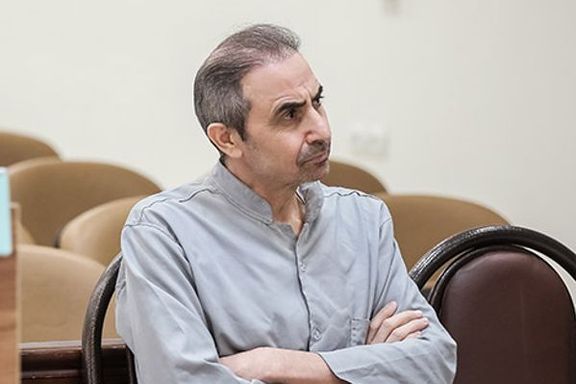
Iran has executed Iranian-Swedish political activist and former leader of the Arab Struggle Movement for the Liberation of Ahwaz (ASMLA) Habib Chaab (Asyud).
The judiciary said in a statement published by Mizan News, its official news website, that the execution sentence for “corruption on earth” passed on Chaab in 2022 was carried out Saturday morning. The judiciary had announced the confirmation of the death sentence on March 12.
Chaab, 49, was put on trial by a revolutionary court in Tehran in December. He was not allowed to choose his own defense attorney and was represented in his trial by a court-appointed lawyer. He was also forced under duress to make self-incriminating confessions.
Iranian authorities say Chaab was found guilty for leading ASMLA (Harakat al-Nidal in Arabic), a movement which advocates the separation of southwestern Khuzestan Province and for plotting "numerous bombings and terrorist operations" in the oil-rich province with a large Arabic speaking population.
Tehran classifies the ASMLA as a ‘terrorist’ organization responsible for acts of terror including an attack on a military parade in Ahvaz on September 22, 2018, which killed 25 military and civilians. ASMLA accepted responsibility for the bombing.
Iranian authorities accused Chaab of receiving funding for the operations of the rebel group from Saudi Arabia and claimed that he was “protected” by Israel’s Mossad and the Swedish intelligence (SAPO). The prosecution also claimed that other ASMLA leaders are based in other European countries, namely Denmark, Sweden and the Netherlands.
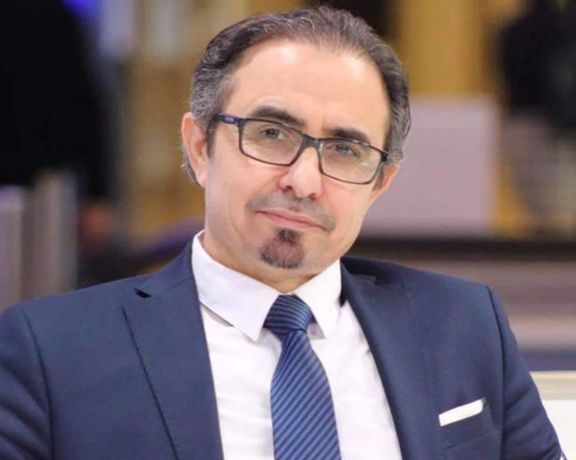
On March 14 2022, a day after the confirmation of Chaab’s death sentence, Sweden summoned Iran's ambassador to the Ministry for Foreign Affairs “to receive Sweden’s protest against the death penalty issued against detained Swedish citizen Habib Chaab.”
“The Government has demanded that the death penalty not be enforced and recalled the EU’s common position, which condemns all use of the death penalty, wherever it is applied. The Ministry has also reiterated its demand for consular access to Mr. Chaab, which Minister for Foreign Affairs Tobias Billström had also previously conveyed to Iran’s Minister of Foreign Affairs,” the Swedish foreign ministry said in a statement at the time.
Iran's relations with Sweden have been strained since July 2022 when a Swedish court sentenced a former Iranian jailor, Hamid Nouri, to life imprisonment over executions of political prisoners in 1988.
Iran's foreign ministry spokesman Naser Kanani in a statement “strongly condemned” the Swedish court’s “politically-motivated and unacceptable” verdict against Nouri, saying the Stockholm government would be responsible for the damage the verdict would cause in bilateral relations.
In November 2020, a few days after ASMLA told Al Arabia that its leader was abducted in Turkey by Iranian security forces during a visit, Iran’s intelligence ministry issued a statement confirming that Chaab had been captured outside Iran and taken to Tehran, without mentioning where he was captured.
Ankara said in December 2020, when relations with Iran were tense just after the Nagorno-Karabakh war between Azerbaijan and Armenia, that it had arrested 13 people led by an Iranian for operations including assisting Iranian security forces in the abduction of Chaab in October of the same year on Turkish soil and delivering him to Tehran.
In March, Iran's judiciary said the Revolutionary Court of Ahvaz had sentenced six Arab activists to death for the killing of two Basij militia members, a policeman, and a conscripted soldier in two separate operations. Six others received long prison terms between 5 to 35 years by the same court. The accused belonged to the armed branch of ASMLA, the judiciary said, adding that the sentences could be appealed.
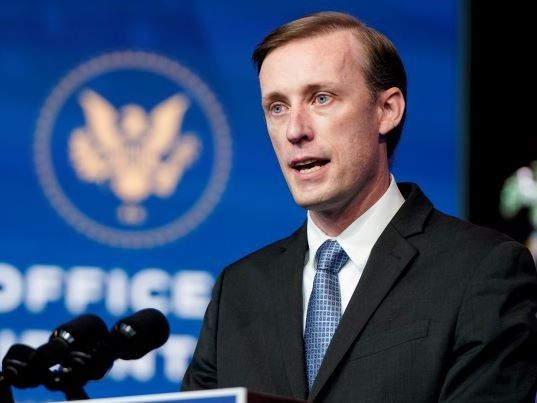
Israel is hoping for a breakthrough this weekend in efforts to normalize ties with Saudi Arabia during US national security adviser Jake Sullivan's visit there, a senior security official said on Friday.
The head of Israel's National Security Council, Tzachi Hanegbi, spoke on Wednesday with his counterpart Sullivan, who is set to travel to Saudi Arabia on Saturday. Sullivan is expected to meet with Saudi Crown Prince Mohammed bin Salman, Hanegbi said.
Announcing his trip on Thursday, Sullivan said Washington was working hard to normalize relations between Israel and Saudi Arabia - a major goal set by Israeli Prime Minister Benjamin Netanyahu who briefly joined Sullivan's video call with Hanegbi.
"We are very, very hopeful that there will be a breakthrough during his visit there," Hanegbi told Reshet 13 News.
Asked whether a breakthrough would be a phone call between Saudi leaders and Netanyahu, Hangebi said: "There are those who say that there have been more than phone calls between Saudi and Israeli leaders. But what is important is that the United States lead a move adding Saudi Arabia to the Abraham Accords - normalization and peace with Israel. If that happens it will be a historic turning point."
The US in 2020 brokered the historic Abraham Accords deal, which included the normalization of diplomatic relations between the United Arab Emirates and Bahrain with Israel, all of which share security fears over Iran.
While Riyadh signaled approval of the accords, it has held off on following suit, saying Palestinian goals for statehood should be addressed first.
Any such prospects have been clouded, however, by Riyadh's strains with US President Joe Biden, its recent fence-mending with regional rival Iran, and the rise of Netanyahu's hard-right Israeli government.
Report by Reuters
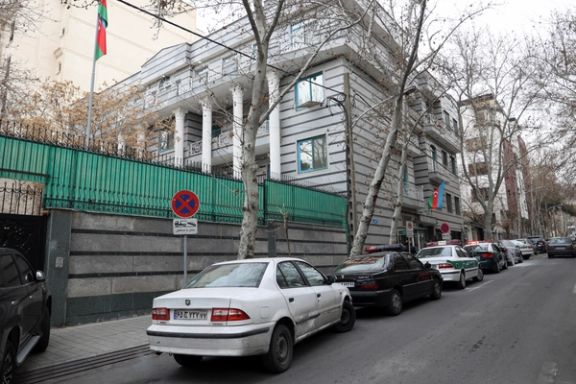
The Islamic Republic has expelled four Azerbaijani diplomats as tensions simmer between Tehran and Baku.
The Iranian state news agency IRNA reported the move on Friday, saying that four diplomats in Tehran and Tabriz have been declared as “persona non grata” and should leave the country immediately.
Describing the measure as a tit-for-tat action, the report said it was a response to Azerbaijan's expelling four Iranian diplomats in early April.
Azerbaijan had said it was expelling the Iranian diplomats over "provocative actions" referring to a series of actions in recent months including military exercises carried out by Iran's armed forces on the border. Baku's decision was announced shortly after it arrested six Iran-funded agents accused of a coup plot.
In January, a gun attack at the Azerbaijan embassy in Tehran left one man dead and last month, there was an attempted murder by what is believed to be an Iranian cell, of Azerbaijani MP, Fazil Mustafa.
The move was seen in part due to Baku's improving relations with Tehran's archnemesis Israel, the dispute spiking when Baku opened an embassy in Israel in late March, slammed by Iran as an anti-Iranian move, a claim denied by Azerbaijan.
Tehran accuses Baku of harboring Israeli intelligence and military elements that plan to use its territory in a possible attack against Iran’s nuclear installations.
Around a quarter of Iran’s population is Azari, with analysts and activists disagreeing over the closeness of their cultural and linguistic links to their neighbors to the north.
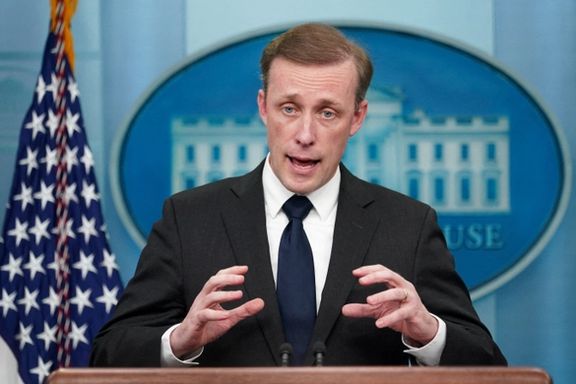
As US National Security Advisor Jake Sullivan Thursday announced his visit to Saudi Arabia, he reiterated that Washington will not allow Iran to obtain nuclear weapons.
Sullivan, speaking at the Washington Institute for Near East Policy, said he would be traveling to Saudi Arabia on Saturday for talks with Saudi leaders. A source told Reuters Sullivan is expected to meet with Saudi Crown Prince Mohammed bin Salman.
Sullivan repeated the administration’s position that the United States will "take the necessary action to ensure that Iran does not acquire a nuclear weapon," but still seeks a diplomatic outcome to the challenge posed by Tehran.
“But we have made clear to Iran that it can never be permitted to obtain a nuclear weapon. As President Biden has repeatedly reaffirmed, he will take the actions that are necessary to stand by this statement, including by recognizing Israel’s freedom of action,” Sullivan told the gathering of Middle East experts at the institute.
Sullivan mentioned that a new nuclear deal with Iran should see all the enriched uranium “whether it’s five bombs or whatever it may be of 60 percent—that that also goes by the board.”
However, the question of how to deter Iran from destabilizing the region remained largely unclear, except fostering integration between allies and pursuing reduction of tensions, alluding to the agreement between Tehran and Riyadh to restore diplomatic relations.
However, after the Chinese-brokered deal in March, Iran openly called for attacks against Israel by its Palestinian and other groups largely dependent on Tehran’s support. A series of terror attacks inside of Israel led to a military flare-up and days of rocket attacks by Palestinians from Gaza and Lebanon.
Iran, calling these attacks a great achievement, has been urging more strikes by its proxy forces.
In recent days the Revolutionary Guard has also seized two oil tankers in the Persian Gulf waters, while the US maintains a strong naval presence in the area.

Speaking about the administration’s policy in the region, Sullivan highlighted the strategy of an “interconnected Middle East” empowering US allies and partners, which would reduce “the resource demands on the United States”.
“So we’re actively building an integrated air and maritime defense architecture in the region. This is something that’s been talked about for a long time, but it’s now happening through innovative partnerships and through technology,” he said.
Robert Satloff, the executive director of the Washington Institute asked Sullivan about how the United States can deter Iran from further expanding its nuclear program, as administration officials have admitted that Iran can be a few weeks from having enough enriched uranium to build a bomb.
Sullivan responded by highlighting military cooperation with “our partners—including working very closely with Israel,” and holding joint military drills, and recognizing Israel’s right to act.
He added that “we are going to continue to take action to, yes, deter Iran from getting a nuclear weapon, and then to seek a diplomatic solution that puts this on a long-term pathway of stability.”
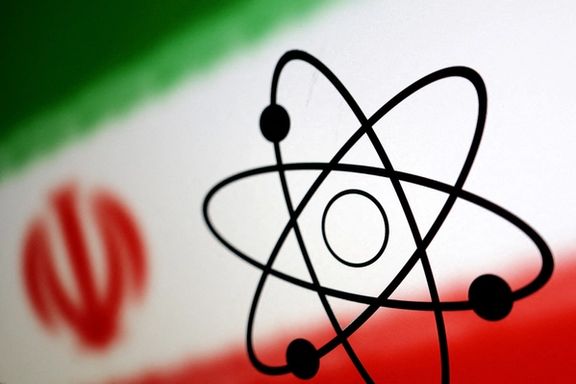
Even as the US and its European allies grapple with Russia's invasion of Ukraine and rising tensions with China, the smoldering crisis over Iran's nuclear program threatens to reignite.
In a sign of European concern, Britain, France and Germany have warned Iran they would trigger a return of UN sanctions against Tehran if it enriched uranium to the optimal level for a nuclear weapon, three European officials said.
The threat, made last year in a previously unreported letter sent by the countries' foreign ministers, underscores Western fears that Iran could produce bomb-grade uranium of 90% purity.
Those concerns intensified in February after UN inspectors revealed their discovery of uranium particles of 83.7% purity at an Iran nuclear facility built deep underground to protect it from air strikes.
A renewed crisis over Iran would come at a bad time for U.S. President Joe Biden who is focused on maintaining allies' support for the war in Ukraine and on rallying Western countries to push back on China's military and diplomatic ambitions.
But while some White House aides may prefer to keep Iran off the president's desk, officials and analysts suggested they may not have that luxury.
"They are busy with Ukraine, Russia and they don't want, for the time being, to open another front," said a Western diplomat on condition of anonymity. "Therefore, they want to do everything in their power to prevent this (90%) from happening."
'Snapback' Of UN Sanctions?
Western officials fear a nuclear-armed Iran could threaten Israel, Gulf Arab oil producers, and spark a regional arms race.
Iran denies seeking nuclear weapons.
US and European officials have been searching for ways to curb Tehran's program since the breakdown of indirect US-Iranian talks on reviving the 2015 nuclear deal between Iran, Britain, China, France, Germany, Russia, and the United States.
The accord, aimed at keeping Iran from developing a nuclear weapon, required Tehran to accept restrictions on its nuclear program and more extensive UN inspections, in exchange for an end to UN, US, and EU sanctions.
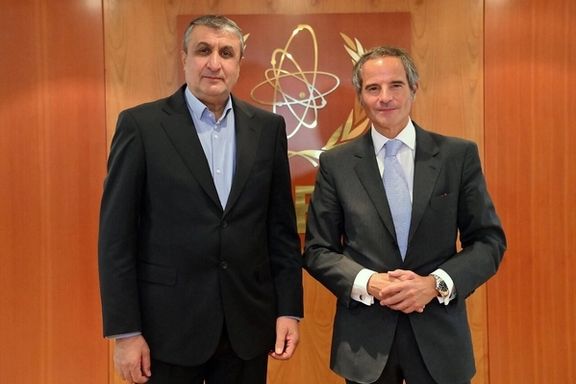
The deal, which had capped Iran's uranium enrichment at 3.67%, was abandoned in 2018 by then-US President Donald Trump, who argued it was too generous to Tehran.
Trump reimposed broad US sanctions, many of which have the secondary effect of forcing non-US firms stop dealing with Iran or risk losing access to the US market, but UN sanctions were not reactivated.
The deal had set out a procedure for the veto-proof "snapback" of the UN sanctions on Iran – including an oil embargo and banking restrictions – in response to Iranian violations. Any of the states who signed onto the original deal can trigger the snapback.
US sanctions - even with their secondary effects - have failed to keep Iran from producing ever-purer levels of uranium and China has flouted them by buying Iranian oil, making it unclear if the UN measures would be any more effective.
But Iran might refrain from enriching to 90% to avoid the public rebuke implicit in the return of UN sanctions.
A senior Iranian nuclear official said Tehran would not take the revival of UN sanctions lying down.
"If the other parties under any pretext trigger it, they will be responsible for all the consequences," he told Reuters. "Iran's reaction could range from leaving the NPT (Nuclear Non-Proliferation Treaty) to accelerating our nuclear work."
Leaving the NPT would free Iran to develop nuclear arms.
The Iranian official's threat was more explicit than comments by an Iranian foreign ministry spokesman, who on Monday said only that Iran had told Western powers how it would react.
It remains unclear if the 83.7% particles were created deliberately. But Western officials and analysts say that Iran's production of 90% uranium would demand a significant response.
A US State Department spokesman said Biden "is absolutely committed" to making sure Iran never obtains a nuclear weapon.
"We believe diplomacy is the best way to achieve that goal, but President Biden has also been clear that we have not removed any option from the table," the spokesperson added, hinting at the possibility of military action.
'Face A Crisis At Some Point'
While Western officials want to leave the door open for diplomacy, tensions with Russia and China make that harder.
Divisions over the Ukraine war, which has seen Iran provide military aid to Russia, and rising Sino-US tensions further reduce the odds of resurrecting the deal because it is unclear how hard Moscow or Beijing might push for its revival.
If the deal is dead, the West has three broad options: deterrence, military action, or a new negotiated arrangement.
Deterrence has a downside: it could give Tehran time to creep toward a nuclear weapons capability.
Dennis Ross, a veteran US diplomat now at the Washington Institute for Near East Policy think tank, suggested Biden may have to do more to make Iran fear the consequences of enriching to higher levels.
"If you don't do enough to persuade the Iranians of the risks they are running, you will face a crisis at some point because they will go to 90%" or move toward weaponization, he said. "What you are seeing is an effort to walk that tightrope."
Analysis by Reuters